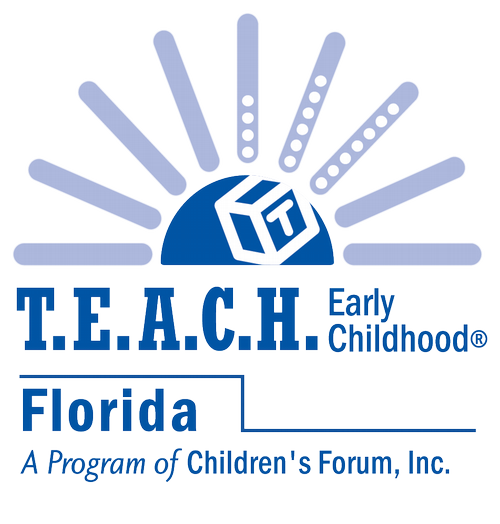Curriculum and Instruction, Early Childhood Education (M.Ed.)

Program at a Glance
- Degree: Master of Education
- Credit Hours: 30
- Certification: Non-Licensure
- Location: Online
- Application Deadlines: Fall Term - August 1; Spring Term - December 1; Summer Term - April 15
- Related Programs: Early Childhood Education Leadership (M.Ed.)
Program Description
The Master of Education (M.Ed.) in Curriculum and Instruction with a concentration in Early Childhood Education is a flexible graduate program designed for professionals who are passionate about supporting the learning and development of young children from birth through age eight. Whether you're an experienced educator or transitioning into the field, this program provides the advanced preparation needed to lead in early learning environments across schools, nonprofits, and community-based organizations.
Grounded in developmentally appropriate practice and informed by research in child development and instructional design, the program emphasizes responsive approaches to teaching and learning. Coursework explores topics such as early childhood curriculum development, social-emotional learning, literacy and STEM education, advocacy and the role of play in early learning.
Students benefit from the opportunity to apply their learning through a culminating experience, choosing from options like an action research project or a field-based practicum tailored to their career goals. This fully-online program is designed to fit the needs of working professionals seeking to advance or specialize in the field of early childhood education.
Graduates of the program are prepared for a variety of roles including early childhood educators, curriculum specialists, instructional coaches and program directors. Many also go on to pursue doctoral study or leadership roles within educational and community organizations. With a focus on whole-child development and access to high-quality early learning, graduates are equipped to make a lasting difference in the lives of children and families.
We're proud to be included in the T.E.A.C.H. Early Childhood Training Directory and to offer degree programs eligible for this impactful scholarship. Funded by the Florida Division of Early Learning, the T.E.A.C.H. Early Childhood Scholarship Program provides financial and academic support to early learning educators, directors, family child care providers, and out-of-school-time professionals. By covering the cost of credentials, college courses, certificates and degrees in early childhood education, this program helps make higher education more accessible and achievable for those dedicated to supporting young children and their families.

Program Details
-
Course Catalog
Explore the graduate courses that will deepen your expertise in early childhood education and prepare you to lead in diverse learning environments. The course catalog outlines the required coursework for the M.Ed. in Curriculum and Instruction with a concentration in Early Childhood Education, including advanced studies in child development, curriculum design, social-emotional learning and instructional strategies for young children. Each course is designed to strengthen your understanding of developmentally appropriate practice and help you apply research-based approaches that support the whole child academically, socially, and emotionally. -
Culminating Experience
As a culminating experience in the M.Ed. in Curriculum and Instruction with a concentration in Early Childhood Education, students choose from three distinct courses designed to align with their professional goals:
- EEC 6944 Practicum in Early Childhood Education: Dive into advanced observation and analysis of primary-aged classrooms, selecting a special topic that allows you to explore and reflect on effective practices in early childhood education.
- EDA 6945 Practicum in Educational Leadership: For students interested in leadership, this practicum places you alongside an organizational leader to apply educational leadership theories in real-world settings. This course is also part of the professional development sequence for Florida certification in educational leadership.
- EDG 6911 Action Research in the Classroom: Ideal for reflective practitioners, this course guides you through the process of conducting classroom-based action research. You’ll learn how to develop research questions, collect and analyze data, and use findings to improve teaching and contribute to the field.
Career Outlook
There is a growing need for early childhood education professionals with advanced training in curriculum design, child development and teaching practices. Graduates of the M.Ed. in Curriculum and Instruction with a concentration in Early Childhood Education are well-prepared to lead in a variety of roles, including early learning educators, instructional coaches, curriculum specialists and program directors. Many also use this degree as a pathway to doctoral study or to advance within school systems, nonprofits and community organizations dedicated to supporting young children and their families.

Admissions Requirements
-
University Requirements
A baccalaureate degree from an accepted institutional accreditor, or its equivalent from a foreign institution, with a GPA of 3.0 or higher in all work attempted in the last 60 credit hours of undergraduate study.
Application and Fee
Prospective students are required to use our online system to create an account and submit an application. The application opens approximately one year in advance and is only good for the term and program in which it is submitted. Applicants who have submitted their application and wish to change their admission term or major/concentration may submit a new application and associated application fee. If you would like to cancel an open application, please contact us.
A $30 (USD) application fee is required regardless of previous enrollment. The application fee is non-refundable and cannot be waived. Undergraduate application fees cannot be used for a graduate application, and vise versa. The application fee must be submitted prior to the review of an application.
Current students who would like to add or change a major, concentration or certificate should submit the Change of Concentration or Major form.
College Transcripts
All applicants must provide transcripts from a U.S. institution accredited by an accepted institutional accreditor or its equivalent from a non-US institution that awarded the bachelor’s degree and master’s degree, if applicable, and transcripts from institutions where any post-baccalaureate and/or graduate credits were earned.
All admits must provide official transcripts.
All international transcripts will require a course-by-course evaluation by an approved third-party credential evaluation agency unless a graduate program has established an alternative credential evaluation procedure that is approved by the graduate school. To be accepted, the evaluation must be:
- Translated to English and be the U.S. equivalent
- Evaluated course-by-course
- Include the overall academic GPA
- Be from an approved third-party accredited evaluation service. Recommended evaluation agencies:
- SpanTran. They have created a custom application for UNF that will make sure you select the right kind of evaluation at a discounted rate. You can access their application through the SpanTran Application - UNF Graduate School portal.
- Josef Silny & Associates, Inc.
- World Education Services
Important Notes
- The UNF Graduate School cannot request transcripts on an applicants behalf.
- Unofficial transcript copies are accepted for admissions but must clearly state the institution name, student name, course information, terms, grades, and credits. Degree audits are not accepted. Admitted students will be prompted to provide official transcripts.
- If currently enrolled in courses, an incomplete transcript must be submitted before the posted deadline.
- Applicants who also have to apply through systems such as ATCAS or PTCAS, must submit separate transcripts to UNF.
- Official transcripts must:
- Must be less than one year old from the date of printing
- Must be submitted in a sealed envelope from your institution, or emailed through official electronic means.
- When requesting college transcripts, please verify with your institution(s) whether or not they are able to submit electronic transcripts in the proper EDI format. Institutions can submit transcripts via e-mail to graduateschool@unf.edu from an approved vendor such as ScriptSafe, Credentials, or Parchment.
- Former or current UNF students should not request UNF transcripts. After application submission, the UNF requirement will be updated to a "waived" status.
Where do I send transcripts?
Mail
UNF Graduate School
1 UNF Drive
Jacksonville, FL 32224Email
-
Program Requirements
Applicants must meet all University of North Florida requirements for admission to a graduate program. However, a current, valid teaching certificate and GRE scores are not required for admission to the Early Childhood Education concentration.
- Letter of Intent
- Letter of Recommendation
Application Process
Applications are accepted for the Fall term until August 1, for the Spring term until December 1, and for the Summer term until April 15. Applications open one year prior to each deadline. Completed applications are reviewed on a rolling basis, and applicants are notified within two weeks of submission.
Students admitted by March 1st are given first priority for the Graduate Assistant positions and other Graduate School awards, fellowships and tuition waivers. Students admitted by May 1st are given second priority. Students admitted after May 1st are considered dependent on availability.
-
International Requirements
Deadlines and Documents
The program application deadlines below are for international students who are seeking F1/J1 visas. While these deadlines are not mandatory, we encourage students to complete their applications and submit all immigration documents at least two months prior to the regular program deadlines to ensure timely visa processing. For most programs, the international deadlines are:
- Fall: June 1
- Spring: October 1
For programs with fall deadlines earlier than June 1 and spring deadlines earlier than October 1, the international deadlines are the same as the program deadlines. Please direct questions to the International Center.
According to U.S. immigration regulations, immigration documents can only be issued for students who are fully admitted to a full-time, on-campus, in-person, degree-seeking program. F-1/J-1 students cannot pursue online degree programs, part-time enrollment, or certificate programs; please see the list of F-1 Non-Qualifying Degree Programs and contact the International Center for more information. This list is subject to change.
English Language Proficiency
All international applicants, except those from an English-speaking country, are required to demonstrate English Language Proficiency by meeting the indicators listedon the English Language Proficiency page.
Affidavit of Financial Support and Bank Certification
The Affidavit is a legal document which is signed by the sponsor (the person who will be providing the funds) stating the amount of funds that she/he will provide for the educational expenses of the student applicant and then certified by a bank official that the sponsor does have that amount of funds in their account. This form represents an obligation on the part of the sponsor to provide the required amount of funds as indicated on the form. Please review the Estimated Cost of Attendance for International Students to determine the amount of funds needed to be written on the Affidavit.
All documentation and immigration inquiries should be sent to the UNF International Center.
Immunization Documentation Form and Health Insurance
All international students are required to submit proof of required vaccinations and health insurance. Please refer to the Office of Medical Compliance with any questions.
*International students must be fully admitted to a full-time, on-campus, in-person, degree-seeking program at the University of North Florida. Please contact the International Center for more information.
Program Contacts
Dr. Katrina Hall
Program Director and Advisor






